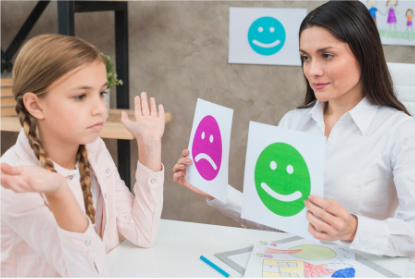In today’s fast-paced and ever-changing world, the importance of Social Emotional Learning (SEL) for children cannot be overstated. As educators and parents, we recognize that academic success is just one aspect of a child’s development. Equally crucial are the social and emotional skills that lay the foundation for a happy, fulfilling life. In this article, we’ll explore a variety of engaging SEL activities designed to nurture these essential life skills in children, setting them on a path toward personal and academic success.
Understanding Social Emotional Learning (SEL)
Before delving into specific activities, it’s important to understand what Social Emotional Learning entails. SEL encompasses a range of skills that enable children to understand and manage their emotions, develop empathy and compassion for others, build positive relationships, make responsible decisions, and handle challenging situations effectively. These skills not only contribute to a child’s overall well-being but also play a significant role in their academic achievement and success in life.
The Benefits of SEL Activities for Kids
Engaging children in Social Emotional Learning activities for kids offers numerous benefits that extend far beyond the classroom. These activities:
- Promote Self-Awareness: By encouraging children to identify and understand their emotions, SEL activities help them develop a strong sense of self-awareness. This self-awareness lays the foundation for emotional intelligence, enabling children to recognize and regulate their feelings effectively.
- Foster Positive Relationships: Many SEL activities involve collaboration, communication, and teamwork, which are essential for building positive relationships with peers and adults. By learning to listen actively, communicate assertively, and resolve conflicts peacefully, children develop the social skills needed to form meaningful connections with others.
- Enhance Decision-Making Skills: SEL activities often require children to think critically, solve problems, and make decisions based on empathy and consideration for others. These experiences help children develop responsible decision-making skills, empowering them to make choices that align with their values and goals.
- Build Resilience: Dealing with setbacks, disappointments, and challenges is a natural part of life. SEL activities provide children with opportunities to practice resilience by learning to bounce back from adversity, cope with stress, and persevere in the face of obstacles.
- Improve Academic Performance: Research has shown that children who participate in Social Emotional Learning activities demonstrate improved academic performance, better classroom behavior, and increased motivation to learn. By addressing the social and emotional needs of students, SEL creates a supportive learning environment where children feel safe, valued, and engaged.
Exploring Social Emotional Learning Activities For Kids
Now, let’s explore a variety of Social Emotional Learning activities that can be incorporated into classroom lessons, after-school programs, or home environments. These activities are designed to be fun, interactive, and age-appropriate, catering to the diverse needs and interests of children.
- Emotion Charades:Objective: To help children recognize and express different emotions.Instructions: Write down various emotions (e.g., happy, sad, angry, excited) on separate pieces of paper and place them in a bowl. One child picks a paper from the bowl and acts out the emotion without speaking, while the other children guess the emotion being portrayed.
- Feelings Journal:Objective: To encourage children to reflect on their emotions and experiences.Instructions: Provide children with a journal or notebook where they can write or draw about their feelings each day. Encourage them to express not only their positive emotions but also any worries, fears, or challenges they may be facing. This activity promotes self-reflection and emotional literacy.
- Empathy Walk:Objective: To develop empathy and perspective-taking skills.Instructions: Have children pair up and take turns blindfolding each other. The sighted partner guides their blindfolded partner on a short walk, describing the surroundings and ensuring their safety. Afterward, encourage the children to discuss how it felt to be blindfolded and how they can relate to others’ experiences.
- Gratitude Circle:Objective: To cultivate gratitude and appreciation for the positive aspects of life.Instructions: Sit in a circle and take turns sharing something they are grateful for. This could be something big or small, such as a kind gesture from a friend, a favorite toy, or a sunny day. Encourage children to express why they are grateful for each item they share.
- Problem-Solving Scenarios:Objective: To develop critical thinking and problem-solving skills in social situations.Instructions: Present children with hypothetical scenarios involving common social dilemmas (e.g., a friend wants to play with your toy without asking, someone is being left out during recess). Encourage children to brainstorm possible solutions and discuss the potential consequences of each option.
- Mindfulness Exercises:Objective: To promote self-regulation and stress management.Instructions: Lead children through simple mindfulness exercises, such as deep breathing, body scans, or guided imagery. These exercises help children become more aware of their thoughts and feelings, allowing them to respond to situations with greater calmness and clarity.
Conclusion
Social Emotional Learning activities play a crucial role in nurturing essential life skills in children, equipping them with the tools they need to succeed academically, socially, and emotionally. By incorporating these activities into educational settings and home environments, we can create supportive learning environments where children feel valued, understood, and empowered to navigate life’s challenges with confidence and resilience. Together, let’s invest in the social and emotional well-being of our children, laying the foundation for a brighter and more compassionate future.


